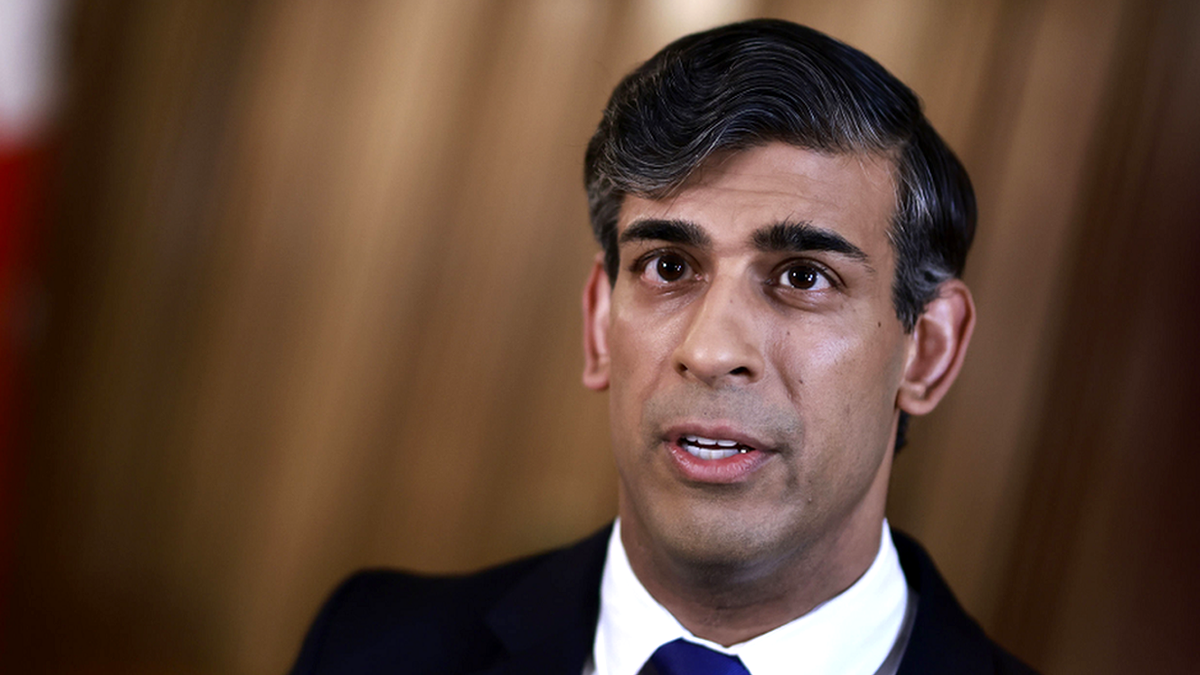Tories promise £730m to end 'sick note culture'
Stride sets out plan to improve mental health provision
- Published
The Conservatives have pledged almost £730m to expand NHS mental health treatment in England as part of moves to cut rising welfare costs if they win the general election.
Funding talking therapies such as counselling services for an extra 500,000 people would help save the economy £12bn a year by ensuring more working age people currently claiming benefits have a job, the Conservatives said.
Since the pandemic, the number of people inactive for health reasons has increased by 33% to 2.8 million, according to the Office of National Statistics (ONS), external.
Before the election prime minister Rishi Sunak made tackling what he saw as "sick note culture" a key theme of his premiership
Labour said Mr Sunak was trying to "disguise the fact that he has caused a spiralling benefits bill".

Mr Sunak said: “Reforming welfare is a moral mission.
"Work is a source of dignity, purpose and hope and I want everyone to be able to overcome whatever barriers they might face to living independent, fulfilling lives.
“That’s why we have announced a significant increase in mental health provision, as well as changes to ensure those who can work, do work."
The Conservatives have pledged to bring forward several reforms first floated by Mr Sunak's government - including reforming disability benefits for those most in need and tightening work capability assessment criteria.
The plans would also remove the power of GPs to issue sick notes and transfer this responsibility to specialist work and health professionals.
Building on an announcement to support an extra 384,000 people complete talking therapies announced in the 2023 Autumn Statement, the Conservatives said their new funding will allow 576,000 access mental health support by 2029-29, helping more people stay in work.
The estimated £730m a year cost would come out of the £12bn of savings the proposals will achieve by 2030, the Conservatives said.
The Conservatives say the package of measures will intervene to stop the cost of providing benefits for working age people with health conditions ballooning from £60bn to £90bn by the end of the next parliament.
However, the independent Institute for Fiscal Studies (IFS) said delivering an extra £12bn of savings from the measures "looks difficult to the extreme".
IFS associate director Tom Walters said: "History suggests that reductions in spending are often much harder to realise than is claimed."
A Labour spokesman said: "This is the latest desperate announcement from Rishi Sunak, who has once again plucked numbers out of thin air in an attempt to disguise the fact that he has caused a spiralling benefits bill.
"These reheated pledges, old policies and vague promises will not get Britain healthy or benefits under control, and do nothing to solve the fact that £10bn of taxpayers' money was lost to benefit fraud just last year."
A Liberal Democrat spokesperson said: Having left almost 7 million people to languish on NHS waiting lists, the only people to blame for the rising number of people signed off sick are the Conservative government.
"Rather than moving the goal posts to force genuinely sick people back to work, Lib Dems would give people the legal right to see their GP within a week, stopping them falling into long term sick in the first place."
The IFS has also warned that the next government will have to cut the scope of what the state provides or raise taxes to maintain levels of departmental funding.
Both the Conservatives and Labour have pledged not to increase the rate of income tax, National Insurance or VAT.
Pressed on how the Tories would fund their spending commitments, Work and Pensions Secretary Mel Stride told the BBC's Sunday With Laura Kuenssberg programme £6bn would be raised from clamping down on tax avoidance.
Asked why this had not already been done already by past Conservative governments, Mr Stride said: "We have been doing it and there’s more we can do."
Related topics
- Published19 April 2024

- Published26 March
